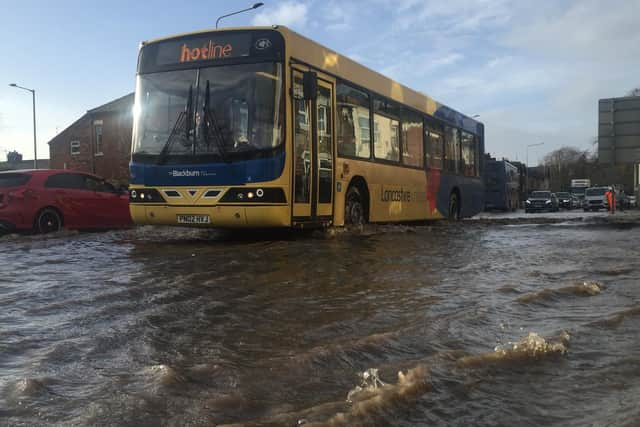This is how to protect your home from flooding ahead of this week's yellow weather warnings
and live on Freeview channel 276
While many areas of the UK are still suffering the effects of Storm Dennis, a further yellow weather warning for rain has been issued for Lancashire by the Met Office.
Weather experts at the Met Office are predicting heavy rain during Wednesday and Thursday - with the yellow warning covering much of Lancashire.
Advertisement
Hide AdAdvertisement
Hide AdGiven the saturated nature of the ground and rainfall predicted to be between 70mm and 100mm, experts are warning that more flooding is likely.


Here is some helpful advice to help prepare for any potential flooding, and what you should do during and after:
How can I plan ahead for flooding?
Public Health England along with the Environment Agency have issued the following advice for the public:
• Sign up for free flood warnings and create a personal flood plan• Find out about the dangers of flooding where you live - your local authority or the Environment agency can help with this information
Advertisement
Hide AdAdvertisement
Hide Ad• Sign up for free flood warning messages from the Environment Agency’s Floodline on 0345 988 1188
• Prepare your home for flooding - here is some helpful advice from the Environment Agency• Buy flood insurance to protect your home
• Turn off your gas electricity and water supply - if you don't know how, call your supplier.
What should I do during a flood?
• Pack a flood kit - include in your pack: phone numbers, insurance documents, bank cards, money, medicines or other essential medical devices, clothes, toothbrush and, if you have a baby, pack nappies and clothing.
Advertisement
Hide AdAdvertisement
Hide Ad• Avoid walking or driving near flood water - fast flowing flood water can be dangerous
• Follow advice from emergency services
• Move family, pets and important items upstairs
• Keep important items and documents upstairs or somewhere high and safe
• Keep children and vulnerable people away from flood water.
• Turn off gas, electricity and water supplies - do not turn off electricity if stood in water
Advertisement
Hide AdAdvertisement
Hide Ad• Check on elderly neighbours and relatives to make sure they are safe.
• If you have to drive – Take extra care in built up areas
• Don't ignore road closure signs
• Never drive through flowing water that is more than 10cm deep
• Be careful not to swallow flood water, which can cause diarrhoea, fever and abdominal pain
What to do after a flood?
• Do not turn on gas or electrics that may have become wet during flooding.
Advertisement
Hide AdAdvertisement
Hide Ad• Get all gas and electrics checked by a qualified technician
• Do not use petrol or diesel generators to dry out indoor spaces - exhaust gases cause carbon monoxide which can kill
• Ventilate and use dehumidifiers and heating to dry out indoor spaces
• Do not eat food contaminated by flood water• Phone your insurance company as soon as you can
• Wear rubber boots and gloves when cleaning up
• Wash contaminated clothes separately from your other clothes